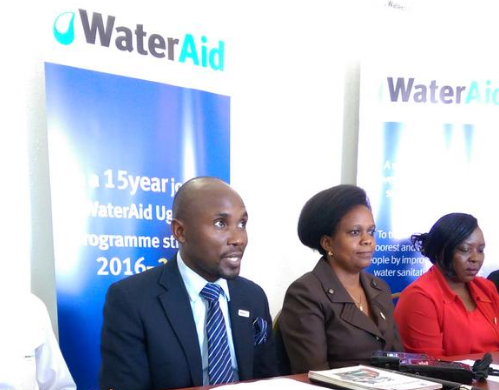After 30 years of closely working with the Ugandan government agencies and indigenous organisations, WaterAid insists water sanitation and hygiene are not only foundational contributors but also drivers to achieving national aspirations of a middle income country status, WaterAid has said.
The international charity’s Uganda arm on Wednesday said it was launching a new country programme strategy for the next 15 years under the theme “Positioning WASH for national development”. The strategy calls for prioritised investment in Water, Sanitation and Hygiene (WASH) to achieve national development aspirations towards MIC status.
This new strategy builds on WaterAid’sexperience in Uganda through service delivery projects in partnership with government agencies and indigenous organisations. Throughout this period, WaterAid has become a leader in innovation and research on appropriate technologies; skilling and capacity building to strengthen institutions; policy influencingand citizen empowerment to enhance good governance. These interventions, have enabled WaterAidreach over 1 million Ugandans with safe water, sanitation and hygiene services
Of the 39 million Ugandans, 8million are living without access to a safe and near-enough water point.
While Uganda is ranked highly in Africa for improved water sanitation and hygiene, challenging socio-economic realities including a high urbanisation rate of 6.6% per annum, a population growth rate of 3.03 p.a. and 56% under 18years (and therefore non-productive).Moreover, all these challenges are exacerbated by climate change, which call for innovative programming and cross-sectoral policy coordination and integration.
“How shall we hope to achieve national development if young people cannot find employment, when women still suffer indignity for lack of a safe toilet and sanitary pads, when babies continue to die of infections because of lack of hygiene facilities at home and at the health centre, and when people and livestock suffer hunger to the point of losing lives, because of extreme weather,” says Francis Musinguzi, WaterAid Uganda Country Director.
WaterAid is convinced that tackling barriers to sustainable access to WASH services specifically for women and girls will be a direct and most impactful response to national development.
“Women in Uganda make up to 88% of the agricultural labour force, contributing up to 77% of the national economy,” says Musinguzi. “Yet, society demands that women carry the burden of ensuring food and water supply at home, care for sick family members, endure gender inequalities in staffing at the work place and for most households also earn a living for their families”
WaterAid has therefore curved out a niche around advocating for the WASH rights of the most marginalised, with a special focus on women and girls.
“We will strengthen synergies with government, civil society, media and the private sector to ensure that every girl can get a quality and complete education, because they have WASH facilities at school.”
The new strategy is envisaged to make direct impact on national development through models for small and medium WASH businesses, pitching for private sector investment, urban planning to ensure climate resilient cities, quality education through increased school WASH funding, child and maternal health through quality health services, among others.
“Over the next 15 years, our core business will be to demonstrate through evidence-based research and analysis that improved WASH can deliver the Ugandan dream: money in our pockets, education for our children, health and dignity for our women and girls, food for generations and a democratic nation that we are all proud to call home,” says Musinguzi.











